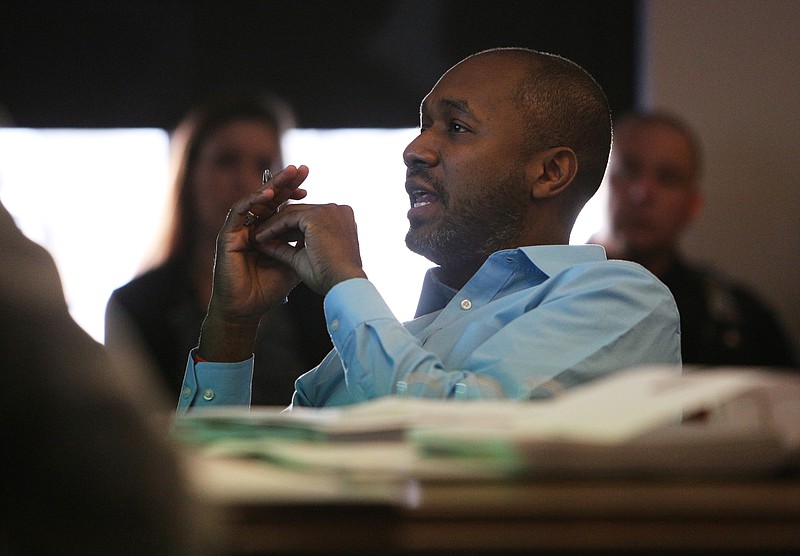Sunday's front page story about the Chattanooga City Council and Mayor Andy Berke's office deciding to work together to resolve an impasse over the Violence Reduction Initiative's social services contract - and thereby improve the work of those social services - is the most heartening local news we seen since the VRI was rolled out.
Council members told Times Free Press reporter Judy Walton that they support the administration's idea of taking the city's anti-gang initiative in a new, youth-focused direction. And Berke acknowledged to Walton that council members raised valid concerns about details of the proposed contract - before and after they declined to vote on it Jan. 16.
They all agree that cutting the gang pipeline by keeping at-risk youth from getting into lives of drugs, crime and violence is crucial.
The next step is to see what else they can agree on.
Such a process - even at strictly the government level - is trickier than it might seem. It's a mayoral administration's job to shape a program that a council can say yes or no about. But it's the council's job to question and fully assess whether that program can and will work - and to suggest tweaks when they think it can't.
In January, the council rejected a proposed new contract with Father to the Fatherless (F2F) after complaining they'd been given too little information and too little time to consider it. F2F has been part of the VRI since the beginning and won the contract as the main social services provider for 2017. But it was one of only two nonprofits to respond to the city's request for proposals, and neither had much of a quantifiable track record.
This is still true today. Council members said they had asked repeatedly last year for F2F's figures on job training and placement, education and other services for adult gang members, but had never been given any information. In 2015, the Times Free Press reported that F2F's internal records belied the city's claims of how many adult gang members were in school or job training or had gotten jobs.
Councilman Anthony Byrd, a council newcomer sworn in last April, said he was not willing to award a two-year, $600,000 contract to an agency that couldn't show its programs were working.
Troy Rogers, the city's public safety coordinator, countered that F2F has a heart and a passion for the mission of saving young people. He said the organization had plans for wraparound services for up to 50 young people referred by the police department, schools and juvenile courts. He also noted that F2F's newest proposal called for shifting the focus of the VRI away from rehabilitating adult gang members to mentoring and educating youngsters to steer them away from gang life.
"This work is like no other," Rogers said. "Poverty, untreated mental illness, illiteracy and a fatherless home - those are the four pillars of socioeconomics that are breaking the backs of the African-American male. You can't throw money at the problem. We've got to have people who are willing to give their life to save another."
Byrd agrees, but said heart and passion are not enough. The city needs to build a stronger network of quantifiable bolsters to help fix the "long-term damage from deep-rooted causes" before we can fix the gang problem.
F2F's mentors, according to its proposal, already work in six Hamilton County schools to provide a consistent adult male presence to teach boys how to become the right kind of men. The volunteers are highly praised for their dedication. But the proposal has few specifics beyond the mentoring program and a reference to family counseling. It doesn't mention connections with established agencies related to child protection, mental and behavioral health, employment and job training or other social services, nor with the school system. None of the people named as case workers appear to be licensed social workers.
Longtime councilwoman Carol Berz, a professional mediator/counselor who largely oversaw creation of the Family Justice Center, a one-stop-shop for social services, agrees that more is needed.
"Rather than discuss individual entities, what we should be doing for the sake of our youth is looking at the strategic plan that addresses a problem," Berz said.
Berke has long said that if problems had easy solutions they wouldn't be problems. That's certainly true of Chattanooga's gang problem, but that fact didn't stop Berke's administration from trying - largely single-handedly.
Now it isn't stopping the City Council either. Byrd has called for a public meeting Thursday in the council chambers to talk this out.
The Chattanooga City Council - with four new members and five seasoned ones - has grown up and evolved.
For the first time in years, this council is acting like a functioning arm of city government, and now - with gang solutions as a topic - no city debate has ever seemed more promising.
